Why France?
Australia does not have a designated commercial spaceport, and therefore entrepreneurs will have to look overseas if they wish to launch into space, and comply with that country’s licensing requirements. Although France does not have a spaceport within the country, there is a launch facility in French Guiana in South America.
Benefits
- French Guiana is near the equator, meaning less energy is required to manoeuvre a spacecraft into an equatorial, geostationary orbit
- French Guiana has open sea to the east, meaning that lower stages of rockets and debris from launch failures are unlikely to fall on human habitations
- Rockets that launch to the east may take advantage of angular momentum provided by Earth’s rotation
Another reason why an Australian space entrepreneur may have to deal with French licensing requirements is if it plans to launch with Arianespace, the world’s first commercial launch provider, which launches out of Kourou in French Guiana.
Basics of the French Legislation – The FSOA
On 3 June 2008, France passed their Space Operations Act (LOI n° 2008518 du 3 juin 2008 relative aux opérations spatiales) (FR), with the objective to implement France’s international legal obligations under space law treaties, in particular those obligations dealing with responsibility, liability and registration:
Which body is responsible?
It is the Centre national d’études spatiales – CNES – which is primarily responsible for the development of French space policy. The President of CNES implements the policies of the Centre spatial guyanais (CSG) – the operator of the spaceport.
CSG is in charge of the control of the technical risks related to launches carried out from Kourou, so as to ensure the protection of property, persons and the environment, both on the ground and during the flight. They also set out the specific applicable regulations.
Purely concerning authorisation, it is CNES which is responsible for the control of the technical conditions associated with authorisations and licences.
‘Space operation’
Article 1(3) of the FSOA defines ‘space operation’ as:
‘Any activity consisting in launching or attempting to launch an object into outer space, or of ensuring the commanding of a space object during its journey in outer space, including the Moon and other celestial bodies, and, if necessary, during its return to Earth.’
It is pertinent to note that the launching phase and command phase is separated in order to establish an apportionment of liability towards third parties if there are different operators for the launch and command phase.
Launching phase
The launching phase is the period of time which starts when the launching operations become irreversible and which ends when the object to be put in outer space is separated from its launching vehicle (Art 1(4)).
Command phase
The command phase is the period of time which starts when the object to be put in outer space is separated from its launching vehicle and which ends when the first of the following events occurs (Art 1(5)):
- the final manoeuvres of de-orbiting;
- the operator loses control over the space object; or
- the return to Earth or the full disintegration of the space object into the atmosphere.
What activities are not covered by the FSOA?
- Human spaceflights (governed by intergovernmental agreements)
- Suborbital flights (governed by a combination of aviation and space law)
- Command of probes (governed by a combination of aviation and space law)
- Sounding rockets and Balloons do not fall within the scope of the definition of a space operation (governed by aviation law)
Aviation law in France is regulated by Direction générale de l’aviation civile (DGAC) (the French Civil Aviation Authority).
Important to know
The FSOA does not define ‘space object’. Accordingly, France has interpreted the Convention on Registration of Objects launched in Outer Space. A space object therefore may be:
- A space craft whatever its status (active or inactive)
- Part of a launched spacecraft when this spacecraft is separated in several parts deliberately or involuntarily
- A launcher stage which remains in orbit after the launching mission is complete
- Part of a launcher which remains in orbit after the mission is complete
- Part of an in-orbit launcher stage after fragmentation occurs (i.e. space debris)
If you are unsure about the status of your technology as a ‘space object’ it would be pertinent to seek legal advice.
When does the FSOA apply to me?
Article 1(2) of the FSOA states that a ‘space operator’ is:
‘any natural or juridical person carrying out a space operation under its responsibility and independently.’
This means an entity which:
- has effective control of the space object; and
- is able to make all critical decisions related to space manoeuvres, in particular end of life manoeuvres.
Note: ‘juridical person’ means a non-human legal entity, such as a corporation or organisation which has duties and rights and which is recognised as a distinct legal person.
Article 2 of the FSOA sets out in what situation a space operator will be caught by the legislation:
- Any operator, regardless of nationality, who intends to launch or return a space object from/to the French territory or using means and facilities that are under French jurisdiction
- Any French operator who intends to launch a space object or return a space object to/from a location beyond the limits of a French territory or using means or facilities that are under foreign country jurisdiction
- Any French natural or juridical person who intends to proceed with the launch of a space object
- Any French operator who intends to control an object in outer space
Use Case 1: Space Operators
ANGELS Aerospace is Australian an enterprise which designs satellites to be launched in geostationary orbit. Recently, it has decided to work with Arianespace as ANGELS Aerospace wants to take advantage of the Kourou spaceport’s proximity to the equator.
In this example, because ANGELS Aerospace wants to launch from French territory, using French facilities, under Point 1 above it must comply with the FSOA and its regulations, as well as Australian licensing requirements (such as acquiring an overseas payload permit – for details view out article on Launch).
Use Case 2: Space Operators
Mathieu is a French national who heads an enterprise that facilitates launches from Cape Canaveral. He wants to work with ANGELS Aerospace and their satellite, which is being launched in Cape Canaveral.
Mathieu and ANGELS Aerospace want to know if he is caught by the FSOA.
In this example, under Point 2 he would be caught by the FSOA and must comply with its regulations.
Note: Both Mathieu and ANGELS Aerospace will also have to comply with the US licensing regime. Additionally, ANGELS Aerospace will have to comply with Australian export controls.
As a result of these regulations, France has arguably the most comprehensive legislative scope on application of national law – there must be only a ‘French connection’ for the FSOA to be applicable.
Authorisations under the FSOA
If you are caught under any of these Articles, then you must have authorisation from CNES.
Article 4 of the FSOA states that:
Authorisation will only be granted after the Administrative Authority (CNES) has examined the moral, financial, and professional guarantees of the applicant, and the compliance of the systems and the procedures the operator intends to implement with the applicable technical regulations, particularly those relating to the safety of persons and property, the protection of public health, and the environment (including prevention of space debris).
Additionally, authorisations will not be granted when the operation is likely to conflict with France’s national security or international obligations (Art 4).
What does this mean for an Australian operator?
If an Australian operator is caught by the FSOA as described above, they would have to submit a technical file to CNES:
- Notification of general compliance with technical regulations
- Which internal standards and quality management provisions will be conducted
- All the measures, including surveys of hazards and risk control plans, taken by the applicant to guarantee the safety of people and property and to protect public health and the environment
- The environmental impact studies and measures designed to avoid, reduce or offset the harmful effects on the environment, including:
- A risk prevention plan relating to risks caused by the fall-back of the space object or fragments thereof:
- a prevention plan relating to environmental damage
- a space debris mitigation plan
- a collision prevention plan
- as applicable, a nuclear safety plan
- as applicable, an earth protection plan
- Any risk control measures planned during the performance of the space operation
- Any emergency measures planned
- A risk prevention plan relating to risks caused by the fall-back of the space object or fragments thereof:
For more details regarding these measure click here to view a presentation prepared by CNES.
Generally these authorisations are granted 24 months before the launch, which can create some legal uncertainty. Consequently, the authorisation is delivered subject to compliance, after its issuance, with specific requirements contained in the authorization (Art 5).
The different licences
A licence attesting the moral, financial and professional guarantees of the applicant.
- Must be obtained by operators as described previously
- You must also obtain authorisation for each space operation on a case-by-case basis
A certification of technical conformity with generic systems and procedures
- Additionally, you must also obtain a simplified authorisation on a case-by-case basis which certifies technical conformity for each operation
Equivalent to authorisation for determined operations within a determined period (obligation of information only)
These are technical control exemptions for space operations being carried out in a foreign country.
- If you were working with French operators, they would have to apply for this licence in order to launch outside of France, likely in addition to the licence they would have to obtain from the launching state
Furthermore, if a French national wants to transfer control of a space object over to an Australian (or other) national, this transference is subject to a second authorisation granted by CNES.
Important to know
The costs of these licences are not readily available. If you have concerns about the costs of these licences or need more information, it would be prudent to consult with a French contact or seek legal advice.
Insurance and Liability under the FSOA
Insurance
Article 6 of the FSOA states that any operator subject to an authorisation shall have and maintain insurance or another form of financial guarantee, and non-compliance may result in a fine of up to €200,000 under Article 11.
According to the FSOA, the operator must obtain €60 million in insurance in case of damages, and that is the limit of your liability – if the damage is over the stated amount, the French government will pay the remainder.
Article 6 (II) states that the insurance or financial guarantee must cover the risk of having to compensate for the damages that could be caused to third parties to the space operation up to the amount mentioned in the first paragraph.
Finally, Article 6 (III) states that the insurance or financial guarantee must cover the following persons to the extent of their liability for the damage caused by a space object:
- the government and its public bodies;
- the European Space Agency and its member states; and
- the operator and the persons having taken part in the production of the space object or in the space operation.
Liability
Article 13 of the FSOA states that:
The operator shall be solely liable for damages caused to third parties by the space operations which it conducts in the following conditions:
- Absolutely liable for damages caused on the ground or in airspace;
- Liable only due to fault for damages caused elsewhere than on the ground or in airspace
This liability may only be reduced or set aside in case the fault of the victim is proven.
Except in case of wilful misconduct, the liability set forth in 1° and 2° ends when all the obligations set out in the authorization or the license are fulfilled, or at the latest one year after the date on which these obligations should have been fulfilled. The Government shall be liable in the operator’s place for damages occurring after this period.
Absolute liability
- means liability which has occurred due to the actions of a person. There is no requirement to prove that the conduct was intentional or negligent conduct. However, the liability extends only to damage which was proximately caused by the alleged harmful conduct.
Fault liability
- is liability in which it must be proven that the conduct was intentional or negligent. This is more difficult to prove than absolute liability.
Use Case 1: Liability
ANGELS Aerospace is an enterprise which launches satellites for the purpose of remote sensing from the spaceport in French Guiana. ANGELS Aerospace has recently become very concerned about space debris mitigation, and as a result all satellites it now launches includes end-of-life de-orbit strategies.
During one such manoeuvre, an error occurs and ANGELS Aerospace can no longer manoeuvre the satellite in order to de-orbit. The satellite conjunction analysis concludes that the satellite will collide with another satellite, which is not manoeuvrable. The two satellites collide.
ANGELS Aerospace will only be liable for the damage if it can be proven that ANGELS Aerospace:
- intentionally collided with the second satellite
- was negligent so as to cause the damage e.g. it did not take an action that a reasonable person would have done in the same circumstances
Use Case 2: Liability
ANGELS Aerospace is an enterprise which launches satellites for the purpose of remote sensing from the spaceport in French Guiana. During its first launch, the rocket collides with an aircraft in French airspace due to an error in trajectory.
ANGELS Aerospace will be liable for the damage unless it can be shown that the operators of the aircraft were also at fault by some contributory action of their own, in which case the liability will be reduced proportionately.
Therefore, ANGELS Aerospace will have to pay up to €60 million via its insurance, and the French government will pay the remainder.
Seek legal advice if
Seek legal advice if you are unsure whether you need to obtain insurance, or whether you have been involved in an activity in which you may be liable for damages.
Related aspects of the FSOA
The FSOA also adds a number of regulations regarding related aspects of the space industry. Its legislation is much broader in scope than many other countries.
Article 22 of the FSOA adds a special provision to the French Intellectual Property Code to the effect that French IP laws are applicable to inventions created or used in outer space, including on celestial bodies and into or on space objects placed under national jurisdiction according to Article VIII of the Outer Space Treaty.
At the moment, as with Australia, France does not have specific laws regarding remote sensing satellites, but the FSOA establishes a regime of declarations, and states that any data provider at a primary stage (that is, any person responsible for the satellite programming) must make a declaration, before starting its activity, to CNES.
Article 23 states: ‘Any primary space-based data operator undertaking in France an activity having certain technical characteristics defined in a decree passed at the Council of State must preliminarily declare it to the competent administrative authority. These technical characteristics are related in particular to the resolution, location accuracy, observation frequency band and quality of the Earth observation data which are received or for which a satellite system is programmed.’
Article 24 provides that the activity undertaken cannot harm fundamental interests of France, particularly in relation to defence matters, foreign policy, and France’s international commitments. As such, CNES may prescribe measures restraining the activity in the event it must safeguard these interests.
Article 25 states that a space-based data operator may be fined €200,000 for failing to comply with the two above sections.
Frequently Asked Questions
Yes, the French Space Operations Act (‘FSOA‘) (FR) contains provisions applicable to overseas nationals launching from French territory (in this case, French Guiana), and French nationals launching overseas. These provisions can be found in Articles 2(1)and (2). Therefore, the FSOA applies to:
- Art 2(1): Any operator, regardless of nationality, who intends to launch or return a space object from/to the French territory or using means and facilities that are under French jurisdiction
- Art 2(2): Any French operator who intends to launch a space object or return a space object to/from a location beyond the limits of a French territory or using means or facilities that are under foreign country jurisdiction
For information on the definition of ‘space operation’, click here.
Keep in mind that, as an Australian space operator, you will have to comply additionally with any relevant provisions and controls in the Space (Launches and Returns) Act 2018 (AUS). If you are interested in launching a satellite, that might mean obtaining an Overseas Payload Permit, and meeting associated minimum insurance requirements.
Both the French Space Operations Act (FR) and the Space (Launches and Returns) Act 2018 (AUS) replicate the general liability regime established internationally by the Liability Convention.
Article 13 of the FSOA sets out that a space operator will be:
- Absolutely liable for damages caused on the ground or in airspace;
- Liable only due to fault for damages caused elsewhere than on the ground or in airspace
If your space activities have resulted in damage to the life, property or spaceflight activities of others, your liability will be determined according to the law under which a claim is made against you.
Insurance requirements are set out in Article 6 of the FSOA, and state that any operator subject to an authorisation shall have and maintain insurance or another form of financial guarantee, and non-compliance may result in a fine of up to €200,000 under Article 11.
According to the FSOA, the operator must obtain €60 million in insurance in case of damages, and that is the limit of your liability – if the damage is over the stated amount, the French government will pay the remainder.
Keep in mind that, for activities requiring an Australian Overseas Payload Permit, you will need to meet minimum insurance requirements pertaining to that licence type under Australian law. See our article on Liability and Insurance.
To view the FSOA in its original French, visit:
https://www.legifrance.gouv.fr/affichTexte.do?cidTexte=JORFTEXT000018931380
To view the FSOA in English, visit:
https://download.esa.int/docs/ECSL/France.pdf
To view a presentation prepared by CNES concerning explanations of the provisions of the FSOA, visit:
http://www.unoosa.org/pdf/pres/lsc2009/pres-04.pdf
To view a presentation prepared by CNES concerning the law, decrees and technical regulations on space operations of France, visit:
http://www.unoosa.org/pdf/pres/lsc2010/tech-05.pdf
Comparing foreign licensing regimes
Key features:
- Australian space law applies to space activities in Australia, and to Australian nationals conducting space activities abroad.
- Space operators are required to hold insurance of up to AUD$100 million under Australian space law.
- The Australian Space Agency charges costs for assessing applications for space licences and permits.
Primary regulator:
The primary regulator of space activities in Australia is the Australian Space Agency.
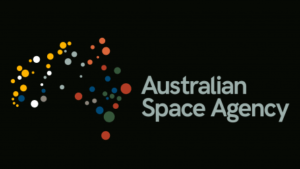
Want to learn more about space law in Australia? Visit our article on Laws applicable to Launch in Australia.
Key features:
- Unlike other space-faring nations, China does not have comprehensive laws to regulate space activities.
- Licence holders are subject to continuing supervision and obligations under Chinese regulations.
- Insurance for space activities is compulsory under the Chinese regulatory regime.
Primary regulator:
The primary regulator of space activities in China is the State Administration for Science, Technology and Industry for National Defence (SASTIND).
Want to learn more about space law in Australia? Visit our article on Space Licensing in China.
Key features:
- Launches are conducted through the Indian government, and there is an established commercial framework with government owned launch provider ‘Antrix’
- Indian launch vehicles have flight heritage, having successfully launched hundreds of foreign space objects
- There is a lack of legislation, leading to potential for discretion and uncertainty
Primary regulator:
The primary regulator of space activities in India is the Indian Space Research Organisation.
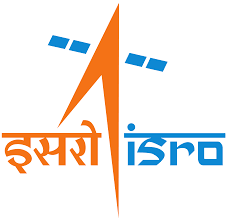
Want to know more about space law in India? Visit our article on Space Licensing in India.
Key features:
- The New Zealand space licensing regime does not charge fees for an application, or for holding a licence or permit.
- New Zealand currently recognises licences from certain jurisdictions as meeting their licence or permit requirements.
- Australia and New Zealand offer equivalent space licences and permits.
Primary regulator:
The primary regulator of space activities in New Zealand is the New Zealand Space Agency.
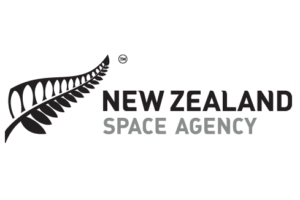
Want to know more about space law in New Zealand? Visit our article on Space Licensing in New Zealand.
Key features:
- Three primary licence activities: Operator, Spaceport and Range Control.
- The granting of licences is controlled by the prescribed Regulator.
- Regulations, including insurance requirements, are still in the process of being drafted.
Primary regulator:
The primary regulator of space activities in the United Kingdom is the UK Space Agency.

Want to know more about space law in the UK? Visit our article on Space Licensing in the United Kingdom.
Key features:
- The United States offers three different licences and permits: Launch/Re-entry Vehicles Specific Licence, Operator licence, Experimental Permits for Reusable Suborbital Rockets.
- The costs of launching activities in the United States depends on various factors, including: the launch vehicle used, size and destination of the payload and insurance requirements, among others.
- licence holders are required to make a reciprocal waiver of claims with the relevant parties involved in launch or re-entry services under which each party agrees to be responsible for personal injury to, death of, or property damage or loss sustained by it or its own employees resulting from an activity carried out under the applicable licence.
- Space operators are subject to ongoing monitoring by the Federal Administration Authority to ensure compliance with licence conditions.
Government regulators:
The regulation of space activities in the United States is split between several federal government agencies:
- The Federal Aviation Administration (FAA)
- The Federal Communications Commission (FCC)
- The National Oceanographic and Atmospheric Administration (NOAA)
- The Department of Commerce
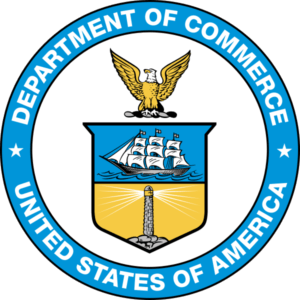
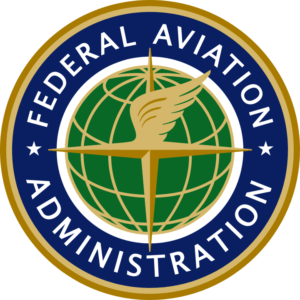
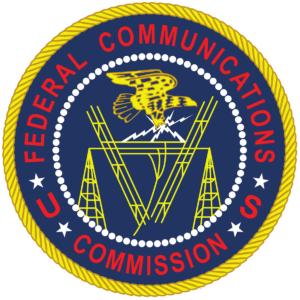
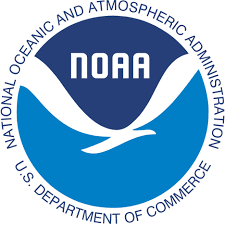
Want to learn more about space law in the United States? Visit our article on Space Licensing in the United States.